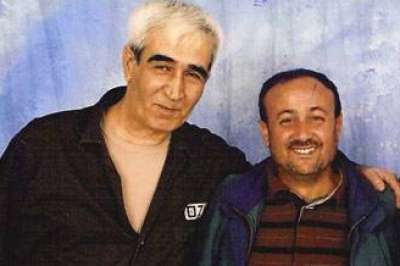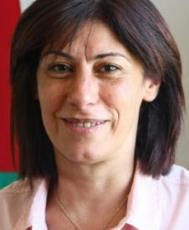ARREST OF LEGISLATIVE COUNCIL MEMBERS
November 2018
Although according to international law and Israeli courts no one can be detained for their political opinions, in practice Palestinian political leaders are routinely arrested and detained as part of an ongoing Israeli effort to suppress Palestinian political processes – and, as a result, Palestinian political sovereignty and self-determination. In the lead-up to the Palestinian legislative elections of January 2006, this process focused particularly on members of the Palestinian Legislative Council (PLC). After the election, Israel further escalated its campaign of arrest of PLC members, particularly those from the winning Change and Reform bloc, largely seen to be pro-Hamas but which includes non-affiliated (and non-Muslim) members. This targeting of PLC members comes despite the fact that Israel did not oppose the participation of the Change and Reform bloc or any other list in the 2006 elections and only declared the bloc illegal in February 2007, one year after the elections were held and most of the arrests carried out.
During the second half of 2017, the number of Legislative Council members in detention increased to 10. However, this number decreased to 5 by the end of 2018. The occupation forces continued to prosecute members of the Palestinian Legislative Council since 2006, and arbitrarily incarcerate them after putting them on trial before military courts that lack guarantees to a fair trial. It also prevented a number of Legislative Council members from traveling outside of the occupied Palestinian territory. The occupation state also revoked the residencies of Jerusalemite Legislative Council members, and forcibly deported them to the remainder of the West Bank, depriving them of reaching Jerusalem.
 Israeli forces arrested the deputy in the Palestinian Legislative Council and Fatah leader Marwan Barghouti on the 15 April 2002. Barghouti insisted during his trial that the Israeli court is illegitimate and illegal, and therefore refused to hire a lawyer to defend him. As a result, he was sentenced to five life sentences and 40 years. Israeli occupation also arrested the Secretary-General of the Popular Front for the Liberation of Palestine and the deputy in the Palestinian Legislative Council, Ahmed Saadat, on the 14 March 2006, after Israeli occupation forces broke into Jericho prison, which belongs to the Palestinian Authority and sentenced him to 30 years imprisonment two years after his arrest. In March 2008, Saadat was issued an isolation order for six months, which was subsequently extended repeatedly resulting in him being kept in isolation for three years. Sadaat was moved out of solitary confinement after an open hunger strike launched by Palestinian prisoners and detainees in April 2012.
Israeli forces arrested the deputy in the Palestinian Legislative Council and Fatah leader Marwan Barghouti on the 15 April 2002. Barghouti insisted during his trial that the Israeli court is illegitimate and illegal, and therefore refused to hire a lawyer to defend him. As a result, he was sentenced to five life sentences and 40 years. Israeli occupation also arrested the Secretary-General of the Popular Front for the Liberation of Palestine and the deputy in the Palestinian Legislative Council, Ahmed Saadat, on the 14 March 2006, after Israeli occupation forces broke into Jericho prison, which belongs to the Palestinian Authority and sentenced him to 30 years imprisonment two years after his arrest. In March 2008, Saadat was issued an isolation order for six months, which was subsequently extended repeatedly resulting in him being kept in isolation for three years. Sadaat was moved out of solitary confinement after an open hunger strike launched by Palestinian prisoners and detainees in April 2012.
The lead-up to the elections
On 26 September 2005, the Israeli Occupation Forces (IOF) launched their campaign of arrest against PLC members, detaining 450 members of the Hamas party mostly involved in the 2006 PLC elections, either through active campaigning or who were taking part in the municipal elections in various West Bank cities. The majority of those detained were kept in administrative detention for different periods. Some were released on the day of the election or a couple of days before or after it. Some of them were elected while in prison, such as Wael Husseini – a Jerusalemite from the 'Change and Reform Party’, who was eventually released after his party's victory and was able to work until the 29th of June 2007.
After the elections
Change and Reform’s association with 'an illegal party’
There are a number of discrepancies regarding the actions taken by the Israeli authorities. Firstly, it must be stressed that the PLC members were chosen in elections that Israel allowed the Palestinians to hold and served in their positions for months during which the Israeli authorities did not even suggest that they constituted a danger. Secondly, the Israeli authorities only declared the Change and Reform bloc to be an illegal party in February 2007, one year after the elections had taken place.
Total number of PLC members in detention at the end of the month from January 2010 to July 2017
|
Year
|
January |
February |
March |
April |
May |
June |
July |
August |
September |
October |
November |
December |
| 2018 | 11 | 11 | 7 | 6 | 6 | 6 | 5 | 5 | 5 | 4 | ||
|
2017 |
4 |
- |
- |
13 |
12 |
12 |
12 |
13 |
12 |
12 |
11 |
10 |
|
2016 |
7 |
6 |
6 |
6 |
7 |
6 |
6 |
6 |
|
6 |
6 |
6 |
|
2015 |
20 |
17 |
16 |
13 |
12 |
12 |
7 |
4 |
4 |
5 |
5 |
5 |
|
2014 |
12 |
11 |
11 |
11 |
11 |
23 |
38 |
36 |
29 |
28 |
25 |
22 |
|
2013 |
12 |
15 |
12 |
14 |
13 |
13 |
14 |
13 |
13 |
13 |
14 |
14 |
|
2012 |
27 |
27 |
27 |
27 |
27 |
26 |
20 |
20 |
13 |
10 |
8 |
13 |
|
2011 |
12 |
12 |
13 |
13 |
14 |
19 |
19 |
19 |
22 |
22 |
23 |
23 |
|
2010 |
|
11 |
15 |
14 |
12 |
12 |
12 |
12 |
9 |
9 |
9 |
9 |
Currently, (12) deputies of the Legislative Council are inside the Israeli occupation prisons, (9) of them are in administrative detention, their names are:
|
No. |
Name |
Area |
Date of arrest |
Prison |
Sentence |
|
1 |
Marwan Al-Bargouthi |
Ramallah |
15/4/2002 |
Hadarim |
5 life-sentences |
|
2 |
Ahmad Sadaat |
Ramallah |
13/6/2006 |
Jalbou’ |
30 years |
|
3 |
Nasser Abd al-Jawad |
Salfit | 01/01/2018 | Magiddo | Waiting for a Trial |
|
4 |
Khalida Jarrar |
Ramallah |
2/7/2017 |
HaSharon |
Administrative Detention |
Arrest of Palestinian Legislative Council Member Khalida Jarrar
On 2/7/2017, at approximately 4:00 am, Israeli occupation forces surrounded the house of Palestinian Legislative Council (PLC) member Khalida Jarrar in Al-Ersal neighborhood in Ramallah. The soldiers raided Jarrar’s home, where she lives with her husband Ghassan and her daughter Suha, after destroying the main door. They searched the house and confiscated an iPad, a hard-disk, and her mobile phone.
Later, Jarrar was taken to a detention center in Ofer prison for interrogation. She was only interrogated for 30 minutes before being placed in a small prison cell with no windows for four hours. By 4:00 pm on the same day, Jarrar was transferred to HaSharon prison, one of the two prisons where dozens of Palestinian women are held.
Jarrar's first hearing was held on 5 July 2017 at Ofer Military Court in Ramallah. During the hearing, the judge decided to extend the detention period of Jarrar to six additional days. On 10 July 2017, Jarrar had her second court hearing, where the judge extended her detention for 48 hours in order for the prosecution to look into the possibility of issuing an administrative detention order.
On 12 July 2017, a six-month administrative detention order, signed by the occupation's military commander of the West Bank, was issued against Jarrar. A confirmation hearing was held at Ofer military court on 17 July 2017, without the presence of Ms. Jarrar, who refused to attend the court hearing. The military prosecution claimed that Jarrar's administrative detention is based on secret information related to her alleged affiliation with the Popular Front for the Liberation of Palestine (PFLP). This claim was made without taking into consideration the fact that Ms. Jarrar is an elected Palestinian parliamentarian and a prominent human rights defender, who advocates for the rights of Palestinian political prisoners within Israeli prisons.
Jarar was to be released on 1 January 2018 after receiving six months administrative detention order, her order was renewed on 27 December 2017 for an additional six month period. Her order was renewed twice after, the last renewal was on 25 October 2018, she is meant to be released on 28 February 2018.
Relevant Prisoner Profiles: |
(1) B'tselem, 1 August 2007: 'Detention of Senior Palestinian officials - wrongful infringement of fundamental rights'.
(2) Ibid 1.
PLC member Khalida Jarrar was subjected to many obstacles imposed by the occupation forces, she was released from prison in June 2016 after serving over a year, including one-month under administrative detention. Jarrar has been banned from traveling outside of the occupied Palestinian territory since 1998, except for one occasion in 2010 when she traveled to Jordan for medical treatment after long procedures and diplomatic pressure.
